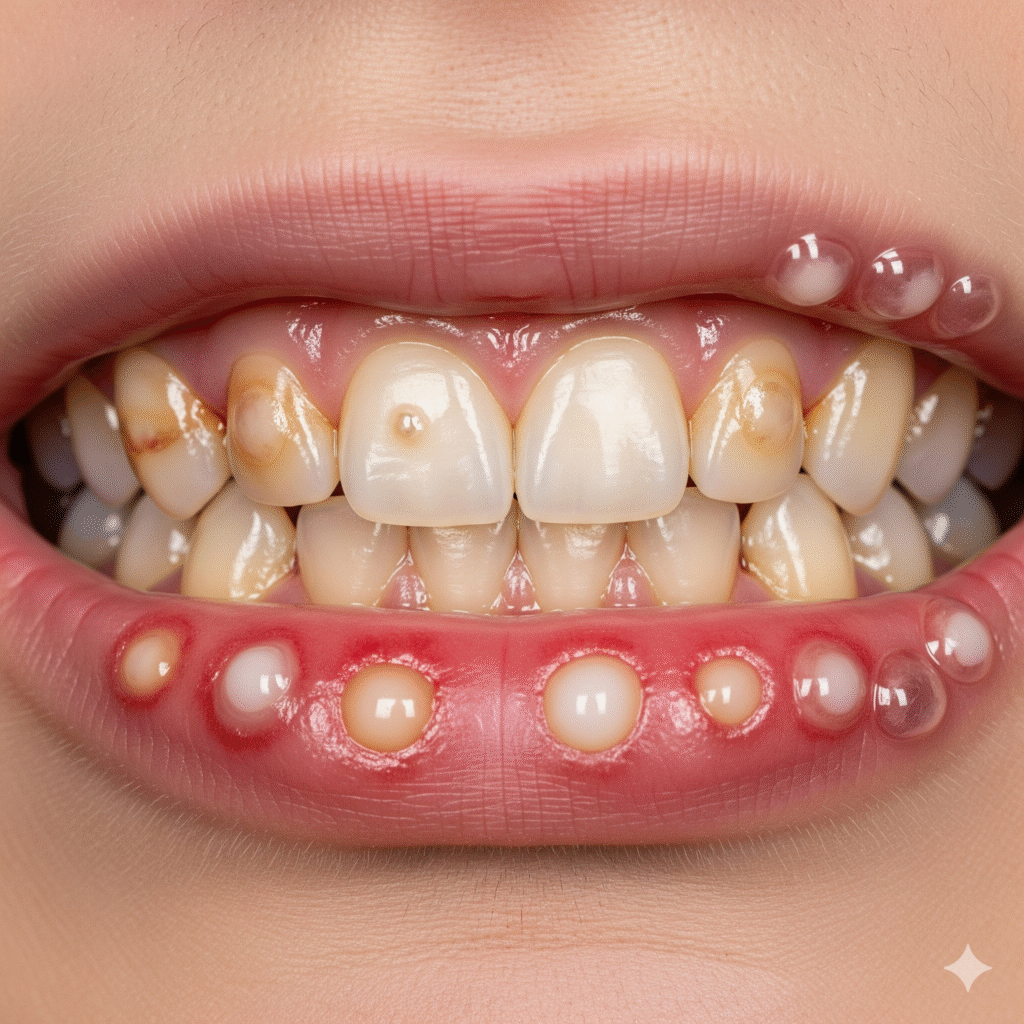
Overviews
Mouth sores, also known as oral ulcers or canker sores, are common lesions that can develop on the gums, lips, inner cheeks, or tongue. They can be painful and are often a sign of an underlying issue, such as an infection, injury, or medical condition. The most common types are canker sores (aphthous ulcers) and cold sores (fever blisters), which are caused by the herpes simplex virus.
Causes
- Injury: Accidental biting of the cheek or tongue, vigorous brushing, or ill-fitting dental appliances.
- Infections:
- Viral: Herpes simplex virus (HSV-1) is the most common cause of cold sores.
- Bacterial: Bacterial infections can lead to abscesses or painful sores.
- Fungal: Oral thrush (candidiasis) is caused by an overgrowth of yeast in the mouth.
- Nutritional Deficiencies: Lack of vitamins and minerals like iron, zinc, B-12, and folic acid.
- Stress: Physical or emotional stress can trigger outbreaks of canker sores.
- Medical Conditions: Celiac disease, Crohn’s disease, and inflammatory bowel disease can be associated with mouth sores.
- Weakened immune system: People with compromised immunity are more susceptible to infections causing mouth sores.
Symptoms
Symptoms vary depending on the cause but may include:
- Pain, burning, or tingling sensation before the sore appears
- A small, round or oval lesion with a white or yellowish center and a red, inflamed border
- Blisters or ulcers on the lips, tongue, gums, or inside the cheeks
- Swelling and redness in the affected area
- Fever or general feeling of being unwell (in severe cases or with viral infections)
Diagnosis
A doctor or dentist will typically diagnose the cause of mouth sores through:
- Physical examination: A visual inspection of the mouth to identify the type of lesion.
- Review of medical history: Discussing symptoms, diet, and lifestyle factors.
- Lab tests: In some cases, a swab of the sore may be taken to check for viruses or bacteria. Blood tests may also be conducted to check for nutritional deficiencies or other underlying conditions.
When to See a Doctor
You should consult a healthcare professional for mouth sores if:
- The sores are unusually large or severe.
- They last for more than three weeks.
- The pain is unmanageable or interferes with eating and drinking.
- They spread to other parts of the mouth or body.
- You develop a high fever, rash, or a persistent headache.
- The sores recur frequently.
Tools
